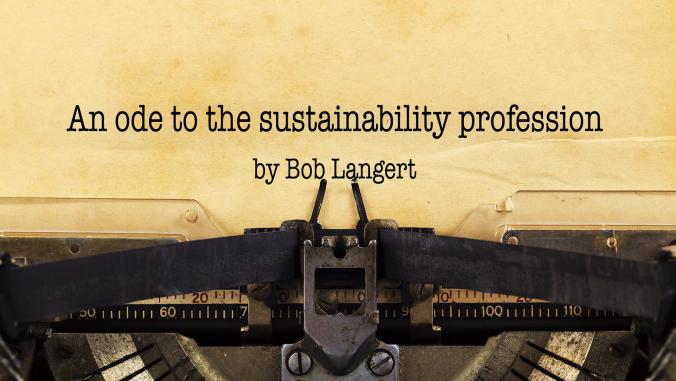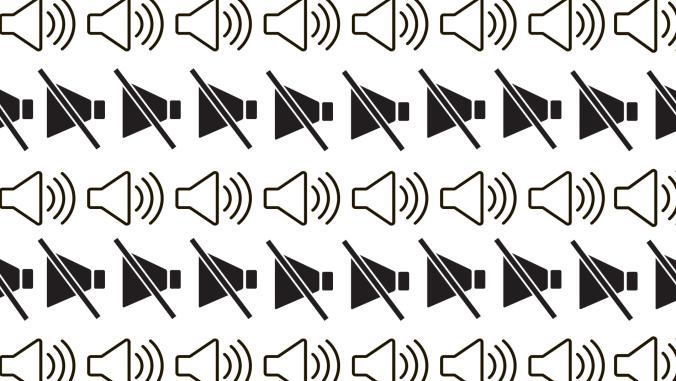10 Minutes with Ryan Bennett
A new multi-stakeholder collaboration is trying to crack the code of sustainable chickens and eggs.

This column is about the "how" of sustainable business. At the practical level, how do leaders make change happen? Ryan Bennett is executive director at the newly initiated U.S. Roundtable for Sustainable Poultry and Eggs.
Bob Langert: Why the need for this roundtable?
Ryan Bennett: The multi-stakeholder concept that the U.S. roundtable is using has been proven to work and makes a lot of sense on how to move forward complex supply-chain issues. We are finding, like other multi-stakeholder groups before us, that the point of view is different between and even within our multi-stakeholder constituencies, but the issues we face are strikingly similar across our five constituency groups, which range from growers to integrators and processors, allied industry, retail and food service in civil society, or NGOs.
So, this process builds trust that currently doesn't exist to the extent that it should between these stakeholder groups and allows them to come together around common language to advance sustainability in the poultry and egg value chain.
Langert: What do you think is broken in the trust relationship?
Bennett: Right now a lot of people are operating in a vacuum in terms of the conversations that they've having across the value chain. So, people are experiencing pressure from outside forces, and those forces are leading them to have conversations with those people applying that outside pressure and with the people supplying them. Of course, those conversations are important but they often leave out different points of view in the rush to satisfy that pressure, that don't really yield the results that fully encompass what sustainability means throughout the entire value chain from a true multi-stakeholder standpoint
Langert: Are you also alluding to the fact that various stakeholders don’t study science enough?
Bennett: Yes, so in terms of science I do not think that it's being used quite enough. But I also don't think that it's being packaged and communicated in a way that's independent and necessarily useful to the people it’s being presented to.We have a really big opportunity here to talk about sustainability in a way that breaks open the discussion and allows people to realize that sustainability is complex.
I think we have a really big opportunity here to talk about sustainability in a way that breaks open the discussion and allows people to realize that sustainability is complex and that there are varying degrees of science and that for example improving one area might have a negative effect on another area or vice versa. Obviously, we are hoping to find those win-wins, but where that's not possible, being able to paint a more accurate picture of what decisions people are making and what they're actually affecting in all of those different areas of decision-making.
Langert: How does this apply to issues such as cage-free laying hens and slow-growing chickens?
Bennett: It's my hope that we don't get into saying we support this production practice over another production practice, but rather stepping back and being an independent arbiter of what the facts are and giving those facts to different companies and allowing them to make more informed decisions. And really, from their point of view, going into things with eyes wide open in terms of how they affect these different levers of decision-making such as science, economics, data and consumer confidence. From there, it is really up to them in terms of figuring out what's right for their company.
But I think right now we have kind of this "option A or option B" dichotomy going on that's really oversimplifying these issues to a degree that's leaving out other important factors that, in my opinion, should be weighed. Groups like mine should be focusing on being able to allow decision makers to have that information and make better decisions going forward with the use of condensed, unbiased, objective research and data all put into one place.
Langert: Does your roundtable have the credibility to do that? No matter what you do, many people look at industry-led efforts with a cynical eye.
Bennett: The first thing that I would say is that we're not an industry-led effort. The industry is putting up the seed money and made the decision very consciously that they wanted this to be multi-stakeholder in nature. So, this effort grew out of a group of industry stakeholders that realized "Hey, we can all have this sustainability discussion but we're leaving key elements of that discussion out of the room."
Slowly, that grew over time to eventually reach the point of realizing that they wanted to create an independent organization with equal seats at the table for each one of those five constituencies. So, we're really trying to tackle this from a full supply chain and full multi-stakeholder standpoint. With everyone at the table having input and buy-in to whatever we create, this should lead to more credible outcomes within and outside of the poultry and egg value chain.
Langert: What's the biggest unknown that's out there for the everyday consumer? What is it that they don't know about the sustainability of chickens and eggs?
Bennett: I wish they understood the efficiency of the natural resources that we use to produce a nutritious product for the price segment that we're reaching. People obviously buy chicken and eggs and understand the nutritional point of view, but I wish they also understood the fact that there's some correlation between some of the price points on chicken and eggs and the fact that we've become great producers and converters of natural resources in a way that's very efficient and leads to better sustainability outcomes, especially on an intensity basis. For example, it takes 36 percent less greenhouse gas, 39 percent less energy, 58 percent less water and 72 percent less land to produce a pound of chicken today than it did in 1965.
Langert: Better efficiency usually means big modern production facilities. Does "Big Food" get an undue stigma?If we could focus more on outcomes, I think we can drive more results and be able to measure and quantify those results in a way that allows us to tell our sustainability improvement story.
Bennett: I think that you can find positive and negative outcomes across a range of production systems. To me, the outcome is what is important in the end.
If we could focus more on outcomes, I think we can drive more results and be able to measure and quantify those results in a way that allows us to tell our sustainability improvement story but also help us identify where we might be coming up short, and allows us to then begin to have the discussion of what are the barriers towards moving outcomes forward and advancing progress in any of these sustainability areas.
I don't want to get into dictating one production system over another. I know that's something this industry gets faced with a lot in terms of questions about production systems and creating standards around different production systems or methods. But really, everybody has a seat at the table with this framework and we're all looking at actually driving real tangible outcomes that improve sustainability and animal welfare.
Langert: What are your dream results, one year out and five years out?
Bennett: One year from now, I would see that we have a broad membership base within each of the five constituencies and that we have developed a draft version of the framework, with common language, common metrics, common indicators throughout the entire value chain and in a way that has built that trust and consensus across those different stakeholder groups.
Five years from now I'd like to see the ability for the industry to eventually get to the point of talking about goal setting and being able to start measuring our progress in a way that would allow us to take credit for the work that we're doing across all these different companies. But also, to be able to have identified where we may be coming up short and starting to discuss what our barriers are to moving forward and how to address those barriers from an industry-wide perspective.
Langert: Do you think meat should be defined as derived from animals?
Bennett: I think that's a legal or political question that really isn't in the scope of this organization. That being said, I do think that people involved in animal agriculture need to be paying attention to the cell-based meat discussion because I think it's indicative of the need for increased attention to sustainability. These products are not marketing themselves on price because they're more expensive than products from animals, and they're not marketing on nutritional content because they're simply trying to replicate what animals are already producing. These products are being marketed based on animal welfare, food safety and environmental sustainability.
To me, this should be sending the signal that the poultry and egg value chain needs to do more in this area to advance and communicate our sustainability progress.





